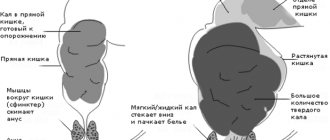When the intestines malfunction and the process of emptying is delayed, laxative herbs proven by traditional medicine come to the rescue and help cope with the problem.
Sometimes they are used in combination with medications, but often they are the only way to fight.
In folk medicine, there are many recipes that are ready to fight constipation. For this, not only herbs are used, but also all kinds of berries, decoctions and tinctures prepared from seeds. This problem has already been touched upon several times on the blog pages.
You can read: How to get rid of constipation using folk remedies, which talks about products that help improve bowel function.
Herbs that have a laxative effect
- Senna (Cassia aculifolia). The leaves contain special substances (anthraglycosides), which chemically irritate the intestinal walls, which causes their accelerated contraction. Effective 8-12 hours after oral use.
- Alder buckthorn. Anthraglycosides are found in the bark of the bush. The action is similar to hay.
- Zhoster laxative (buckthorn laxative). The active ingredients in this type of plant are contained in the fruits from which the decoction is made.
- Seed flax. Its seeds contain mucus, which has an enveloping and mild laxative effect.
- Laminaria (sea kale). Its thalli are capable of swelling and increasing in volume, which causes mechanical irritation of the intestinal walls, stimulating its motility. Due to the content of iodine salts, kelp can additionally affect the metabolism of fats in the body.
- Dill is fragrant. In addition to the well-known carminative effect, it also has mild laxative and antispasmodic properties. Used for flatulence and constipation as an aid.
- Common oregano. Its herb is used as a choleretic, diuretic, antimicrobial, expectorant and sedative. Additionally, it increases appetite and enhances intestinal motility.
Herbal medicine techniques for colon cleansing
Depending on the method of application, several therapeutic and preventive methods are distinguished:
- ingestion of medicinal infusions and decoctions;
- administration of herbal decoctions/infusions into the rectum using an enema;
- micro-douching.
Some medicinal herbs are more effective to drink, while others are administered through the intestines.
Oral administration
Decoctions and infusions of medicinal herbs are drunk according to a certain scheme, depending on the specific name of the herbal preparation used.
- It is better to take medications with a choleretic effect 30 minutes before meals.
- Herbs to improve peristalsis are consumed throughout the day, between meals.
- Herbal remedies that affect intestinal motility are drunk on an empty stomach.
The duration of the cleansing course is determined individually.
Microdouching of the large intestine
Used for symptoms of severe slagging. Most often, a decoction of celandine is used to cleanse the intestines (1 part dry herb to 10 parts water, boil for 10 minutes, strain). Use warm in a volume of 50 to 300 ml.
For microsyringing, it is advisable to use a syringe with a soft tip. To avoid damage, you should not make sudden movements after administering the decoction. It is advisable to carry out the procedure in the evening.
At the same time, to enhance the cleansing effect, decoctions of medicinal plants are used internally:
- pharmaceutical chamomile, which has the ability to purify the blood, reduce allergic manifestations, and have a positive effect on the gastrointestinal tract;
- calendula, which has an anti-inflammatory and antiseptic effect;
- plantain - prevents rotting processes in the intestines;
- dandelion - effectively used for the purpose of deep detox, normalization of acid-base balance, elimination of gas formation, improvement of appetite;
- alder cones - help with various intestinal disorders.
The cleansing course is designed for 2–4 weeks, depending on the degree of slagging, the physical condition and well-being of the patient.
Cleansing enemas with herbal infusions
Used at home for deep cleaning of toxins. Before starting the procedures, you should definitely consult your doctor, as there are contraindications.
A special container (Esmarch mug) is filled with liquid in a volume of 500 ml. Raise to a height to create pressure. The patient lies on his left side, bends his knees and presses them to his stomach. The tip at the end of the tube is inserted into the anus. To prevent injury, the tip should be lubricated with Vaseline, and when inserted, be completely relaxed.
The temperature of the liquid should not exceed 38 degrees. The introduction is carried out gradually. After this, you should refrain from bowel movements for as long as possible so that the medicinal decoction has time to act on the intestinal walls. It is recommended to wait at least 10 – 15 minutes.
Pharmacy drugs
In the pharmacy you can find both tablets or liquid concentrates containing laxative plants, as well as their preparations.
Herbal remedies that can be used for constipation
- Proctophytol . It is an antihemorrhoidal preparation. Ingredients: senna, buckthorn, coriander, yarrow, licorice. It has hemostatic, antispasmodic, anti-inflammatory and laxative effects. Available in filter bags containing 2 g of raw materials. Directions for use: Place 4 g of herb in a deep plate or mug, pour a glass of boiling water and leave for 15 minutes. Drink 150-200 ml of infusion at night. The effect is observed closer to the morning. The duration of the course should not exceed 7 days in a row. Can be used for hemorrhoids, when stool retention is extremely undesirable.
- Gastric collection No. 3 . It copes well with constipation and intestinal spasms that may occur against their background. Ingredients: nettle, buckthorn, valerian, calamus, mint. Produced in the form of filter bags of 2 g each. Method of preparation: pour boiling water over 2 filter bags and leave for half an hour. The infusion is consumed twice a day, half a glass: morning and evening. It is recommended to shake before use to remove sediment from the bottom. The duration of the course is no more than a week.
- Laxative collection No. 1 . Ingredients: buckthorn, nettle, yarrow. Available in packages of 100 g. Method of use: place 6 g of raw materials in a bowl, pour boiling water and place in a water bath. After 30 minutes, remove and cool. Take half a glass at night. The effect occurs after 8-12 hours, the duration of action directly depends on the state of the gastrointestinal tract of a particular person. The course should not exceed 7 days.
We recommend reading:
Adsorbents: names of drugs and features of their use
Herbal laxative tablets
Products related to both medicines and dietary supplements:
- Senade (Senadexin). The active ingredients of Cassia aculifolia are sennosides A and B. Take 1 tablet at night. If there is no effect, it is possible to increase the dose to 2-3 tablets at a time. Relief is observed after 8-10 hours. Allowed with caution from 6 years of age.
- Phytolax. Available in the form of chewable tablets with a pleasant taste, which do not need to be washed down with water. Ingredients: senna, apricot, dill, plantain, dietary fiber. Take 2 tablets with meals in the evening. Allowed from 14 years of age.
- Fitoslabin. Tablets based on buckthorn, senna, mint. Taken only by adults, 2 tablets before bedtime. Course – 2-3 weeks.
- Frutolax. Available in capsule form. Ingredients: beets, prunes, figs, apricot, senna, fennel, lactulose. Approved for use from 14 years of age, take 2 capsules in the evening. Adults can increase the dosage to 4 capsules. Course – 2 weeks.
Senna-based tablets are considered “hard” laxatives, and uncontrollable diarrhea very often occurs. The act of defecation may be accompanied by painful spasms. It is best to use them once to avoid addiction.
Products based on other herbs or fruits are much gentler. They can be taken daily for 2-3 weeks, but there is also a chance of addiction, although not as high.
The appearance of “naturalness” is deceptive. Almost all herbal medicines have negative consequences, therefore they are prohibited until the age of 14 (except for senna - it can be used with caution from the age of 6). Herbal infusions are dangerous because you can easily exceed the dosage if you measure the raw materials incorrectly. This is especially true for plants that are not sold in pharmacies - they can be collected by mistake and have not a laxative effect at all, but a toxic one.
We recommend reading:
Psychological constipation in a child 2-4 years old: methods of overcoming
Indications for use
Constipation is usually called the absence of bowel movement for several days or the presence of dry and very hard stool, which is accompanied by discomfort and bloating. Such problems may arise against the background:
- lack of coarse fiber in the daily menu;
- excessive use of medications;
- due to violations of the water regime;
- lack of physical activity.
Lack of physical activity is a possible cause of constipation.
But an equally common cause of constipation is gastrointestinal pathologies. Regardless of the reasons that cause problems with bowel movements, they should be eliminated as soon as they appear. This will help prevent the pathology from becoming chronic and prevent the development of complications. As practice shows, medicinal plants with a laxative effect are an effective method in the fight against constipation.
Contraindications
| Absolute | Relative |
|
|
Herbal laxatives are the most allergenic. If a person has ever had a negative reaction to any plant, it is worth choosing synthetic products.
In continuation of the topic, be sure to read:
- Fast and mild laxatives + products
- Drugs to improve intestinal motility
- Glycerin suppositories: instructions for use for adults
- Osmotic laxatives: names of drugs and their use for constipation
- Laxative suppositories for constipation: list of medications and instructions for use
- How to use magnesium sulfate (magnesia) powder for colon cleansing
- Buckthorn-based laxatives: list of drugs and their use
- Bisacodyl-based laxatives: name of the means and their use
- Lactitol-based laxatives: list of drugs and features of their use
- Saline laxatives: names of drugs and their use
Side effects
Negative manifestations are possible both due to the use of pharmaceutical and homemade herbal laxatives. As a rule, unpleasant moments indicate intolerance to one of the ingredients, incorrect dosage, or a violation of the preparation technology of the product.
Common side effects include:
- heartburn;
- allergies;
- addiction;
- nausea and vomiting;
- soreness in the stomach.
Heartburn is a side effect of using herbs for constipation.
But no matter what herbs you use, it is quite possible to avoid unpleasant symptoms if you do not ignore the doctor’s recommendations and carefully read the instructions before use.
What water to drink for constipation
Treatment of constipation at home is quickly carried out with magnetic water. It is prepared like this: take an ordinary iron watering can and attach two magnets to the nose. Slowly pour water from a watering can into some container. Then pour it back into the watering can and repeat the procedure. This way you can get magnetic water that is good for 10 hours. Drink half a glass three times a day, do enemas at night.
A quick cure for constipation is to drink plain, clean water. In the morning, drink a glass of warm water on an empty stomach, then a glass of hot water.











